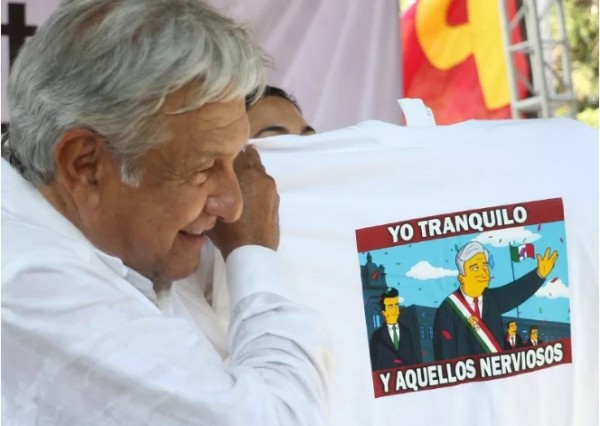It has already been 16 months since Donald Trump took office on January 20, 2017. However, the issue of Russian interference in the US elections is still making headlines in the country’s main newspapers.
The elections for the presidency of Mexico will be held on July 1 and the question that many people ask is: could Russia interfere in the elections?
On December 15 at the Jamestown Foundation, H.R. McMaster, then President Trump’s national security adviser, said: “Initial signs of this have already been seen (referring to Russian interference) in the Mexican presidential campaign.”
Despite the comments of H.R. McMaster, at the beginning of the year, the spokesman of the Government of the Mexican Republic, Eduardo Sanchez said in a press conference that “there is no evidence of Russian interference in Mexico.”
In November and in the presence of Sergey Lavrov, Russian minister of the exterior, the head of the Ministry of Foreign Affairs Luis Videgaray, said that “the Mexican government has no evidence to validate this hypothesis” referring to the possibility that Russia could be interfering with the Mexican election.
Russia has consistently denied accusations of any kind of interference with other countries’ electoral processes.
But, according to Manuel Cossío, whose company Radar Digital performs social network analysis for politicians and businessmen, the candidate for Morena, Andrés Manuel López Obrador, is the most mentioned by the Russian bots.
Using Netbase, a digital analysis tool, Cossío ensures that in a period of 30 days (from April 10 to May 9), while analyzing Twitter, Facebook, Instagram, YouTube, Tumblr and other social network platforms that allow users’ interaction, AMLO has been mentioned in more than 112 million publications originated outside Mexican territory.
According to the Netbase analysis, 64% of these posts come from Russia and 18% from Ukraine.
López Obrador has denied Russian interference in the elections and even published on January 18 a video on Twitter mocking the complaint: “I’m no longer Peje, now I’m Andres Manuelovich,” he said.
Sources of the National Executive Committee of Morena told CNN en Español that they have no relation to the comments on social networks mentioned by Cossío in an interview with Fernando del Rincón.
According to the Mexican electoral authorities, they have not noticed any attempt of interference in the presidential elections of July 1st, by any foreign country. However, they claim to be prepared to take action against a possible computer attack.
“What is always done at the institute during the electoral processes is to establish all the mechanisms and all the necessary measures to generate security in our systems using the necessary tools, with the collaboration of experts in matters of armoring” said Pamela San Martín, electoral counselor of the National Electoral Institute.
Source: yucatan.com.mx

